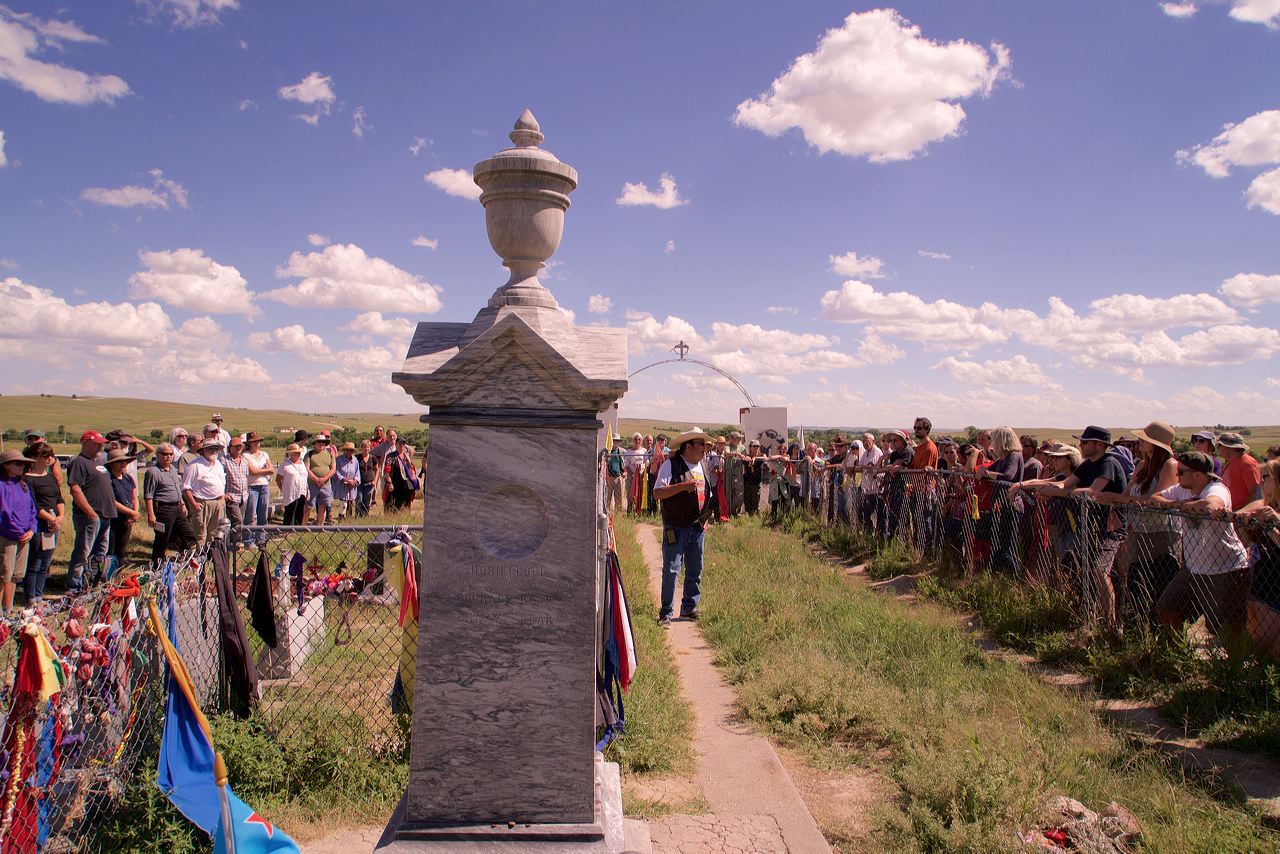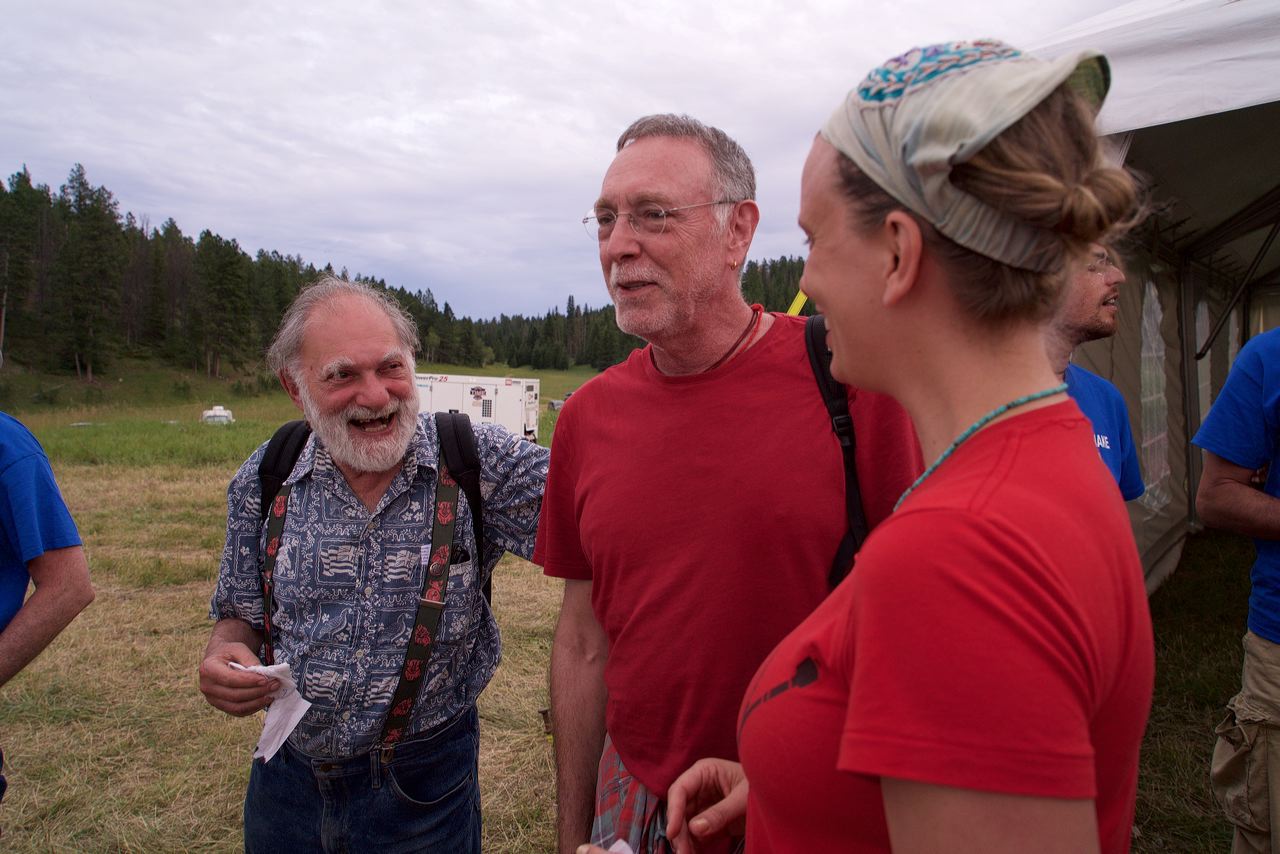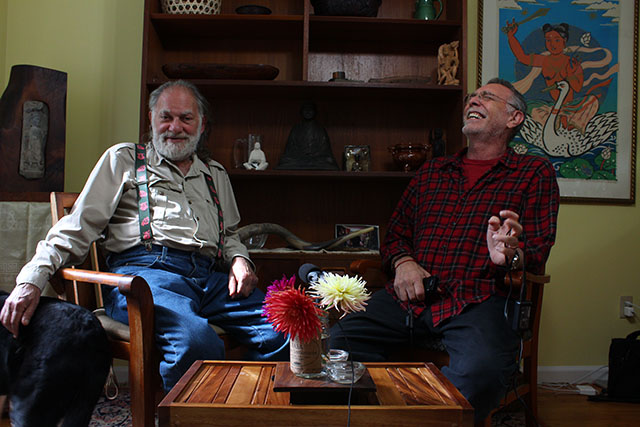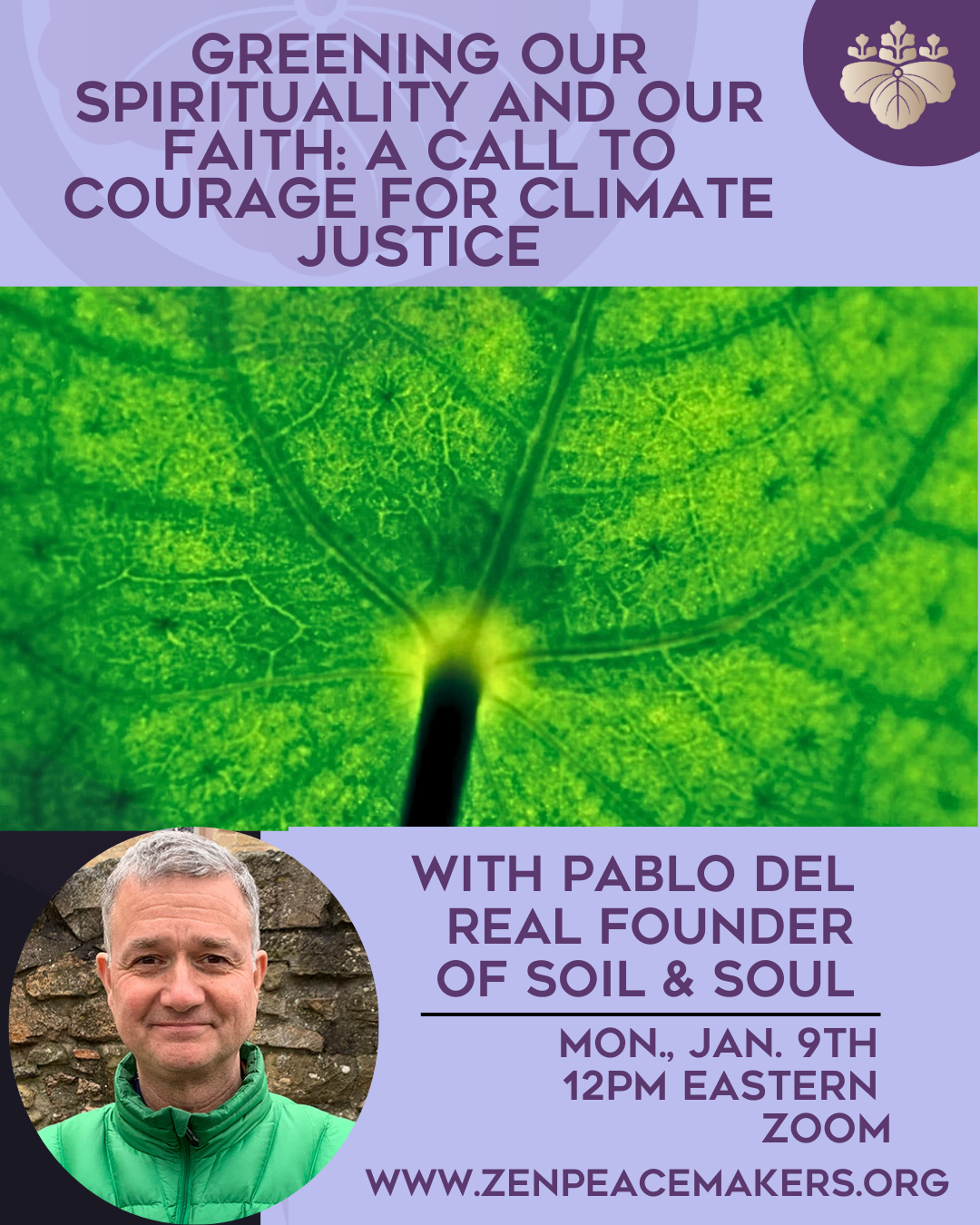Transcribed from a recording at Bernie’s house in Montague, MA USA, 9/21/2015
VIEW INTERVIEW VIDEO HERE
BERNIE: So we all talk about the interconnectedness of life, the oneness of life, but if we look carefully at ourselves and see how many aspects of life we shy away from or won’t come in contact, and then try to figure why. I think the biggest reason is fear. So that’s how these Bearing Witness retreats… Well, I don’t know if they started because of that, but that’s where the large numbers started.
KD: I had a lot of fear before my first retreat, “How am I going to deal with this?” Just the fear of going, being in that place where so much suffering happened and so much torture and so much inhumanity was manifest. So I just didn’t know what was going to happen to me, you know. So just to go and go through the process and the practice of being in the camp at that time was] very freeing from that fear that I had. Just not that simple. And then to be talking about fear, how much fear there must have been in the camp at the time of the war. The atmosphere was extraordinary.
BERNIE: We were just together in South Dakota, in the Black Hills and we met with the Lakota folks. And the fear, the elders went to boarding schools ran by Church, Catholic Church, and the fear that must have existed there, because if they spoke any Lakota they were beaten up, if they wore any traditional clothes they were beaten up. In that school there is a track where people run around and underneath that there’s graves of children that died there. So they had a reason to be afraid, but that fear permeates everywhere. The other reason for these Bearing Witness retreats is our ignorance, which I think that is with most of the non-Native Indians that came, they had no idea of what went on in their own country, of what we did.
KD: And are still doing.

BERNIE: And are still doing. And why we have these ignorant things? Again, in a way I think it’s fear. You don’t want to know. So it’s fear, it’s guilt, but we don’t want to know. So we try to stay away. So, what I found for myself, maybe about 25 years ago actually, I was in a place that in my practice I needed to go to places where I didn’t want to know what was going on, where I felt I had to stay away, or where I was afraid of it. So those were the places I went. Now, in the old Buddhist traditions in India and Tibet they had what they call charnal practices where you would go to the cemeteries and sit with the spirits that are coming in, it’s] a very similar thing and a way of dealing with our own insecurity, our own fears, our own wanting to be ignorant of certain things and not really grasping that that means that we are not connecting to all that which is us. We are all one, we are all interconnected. So if we’re staying away from the large part the way we are staying away from the large part of ourselves, there has to be practices to bring those connections. And then I also feel very strongly that there’s got to be practices to celebrate that. And those are bhakti practices, chanting practices. I mean, there are many practices to do that, but I think that they take on another significance if it’s also linked with bringing in the shadow or the places we don’t want to know about, we don’t want to touch. So we make a good duo, man!
KD: And people get very attached to the way they live. Remember when I sang in… You asked me to sing it was in the women’s, no it was in the men’s… one of the men’s…
BERNIE: Barracks.
KD: Barracks, and so I sat down there on the mud and one guy just exploded, remember? “I didn’t…” and he ran out of there. Remember that?
BERNIE: I do. He’s a student of mine.
KD: Oh, was he? He must be a very good student. So he didn’t want to let go of something, right. I mean, he’s…
BERNIE: Right.
KD: He came back.
BERNIE: He didn’t want to open up.
KD: He didn’t want to open up. He was there with the suffering but he didn’t want to open, he couldn’t let go of that, he was attached to his suffering, I guess you could say.

BERNIE: I think so. I think so. And we put a lot of emphasis on that first tenet in the Zen Peacemakers, being open and being open to everything, you know. It’s very difficult and so he had studied that, but he couldn’t do it. He couldn’t do it, he was trapped by his conditioning of what should be instead of being open to what is. Another case like that that was sort of interesting, two years ago… We always go to the women’s barracks, there’s a women’s barrack where women were put when they couldn’t work any more, they were put in there, they weren’t given food, they were just left there to die. So two years ago we decided that we would have the men go to the men’s barracks and the women into this women’s barracks. We did that. Then went in Ohad, who is a rabbi from Israel and plays guitar, he started playing some Hassidic tunes and we were singing. There was somebody who got really pissed off. “How are you singing here? This is how we should sit.” And then we were supposed to meet up with the women, but we went on, we were singing, dancing, and it went on so long that it was lunchtime, so most people went outside the camp to the trucks to get their soup. But some including the rabbi went to the women’s barracks to see what was going on. It turned out that one of the men was engaged to one of the women who was in the barracks, they went and she saw them coming and she said… they were going to get married in a couple of weeks in Prague or something.
She said, “Why don’t we get married here?”
He said, “Here?”
She says, “Yes, why not?”
And they ask Ohad, “Can we do that?”
And he said, “Do you really want to do it?”
And they said, “Yes, we want.”
And he said, “Yeah, I can do that.”
And he married them.
Now, a number of people that were upset, there was a woman who was very upset about the women dancing and whatever, she was an Orthodox Jew. And then I pointed out, a few days later, in the evening, the last evening, Friday night, when we end, I pointed out that most people is those barracks were from the Hassidic Tradition, and a wedding in the Hasidic Tradition the men are separated from the women, and they’re both dancing, they’re singing and dancing, and then at some point the rabbi leads the groom to where the bride is and they get married. And I said, that’s what happened here! And can you imagine the delight of the people that we’re here, and singing… A wedding in their tradition happening right in their space. So both of those people who were so upset, “Wow, yeah, why you were so upset? We’re part of history-making.” And again, because they were afraid, they were closed.
KD: And even so, being closed and afraid, that is part of the program that they received from the culture. This is how we have to live with this, we have to be closed, we have to be afraid, we have to only be unhappy about it.
Well, I remember when you gave me those eight lines to work on from The Gates of Sweet Nectar, the actual translation as you gave it to me, the last line was “all of your sorrow, I make it mine,” which is the Bodhisattva taking on the sorrows of the world. So when I brought that to you, you said, “Oh, I want the joy too, you got to put that in there.” So I changed it to “your joy and your sorrow.” But it’s more inclusive, it’s more…
You know, when I… That first time I was in Auschwitz, I had my harmonium with me because I had been singing in Europe, so I took it into the women’s barracks and I thought, “I will do some Devi Puja here, I will sing to the Goddess, the perfect woman who embodies all the women.” So I got in there and I put up the harmonium, I was just about to sing and I thought to myself, “Well…” First of all, it was so full. I don’t think I’ve ever sang to more people than the beings I felt in that barracks, empty barracks. I don’t have these kinds of experiences, but I just felt it, so I asked them, “What should I sing to you.” And what came back, they wanted me to sing to their children, so I sang Gopala, Gopala, which is the child Krishna. And I felt they felt such joy from that, because they were remembering their children and the love that they had for their children. That was a very beautiful experience, completely unexpected.
BERNIE: I think that’s the beauty of the Bearing Witness, is that what comes out is never really what is expected. There’s no planning it.
KD: Yes, there’s no planning it.
BERNIE: We just open, and bearing witness and letting it be. And so we enjoy, we grow receiving the unexpected… That feels good to me, like a lock.
Top Photo by Rami Efal.





3 risposte
I have read so many articles or reviews on the topic of the blogger lovers
but this post is truly a good paragraph, keep it up.
Bless you Bernie for your zenmaestroship down the years – and fuck Get Well Soon. Be Well Now, brother!
And KD you mischievous bodhisattva, way to go singing to the spirits of the multitude of crucified women in that hellacious place! Love and Prayers to you both. Michael xx
I am so grateful to have been able to sing along with Gate of Sweet Nectar after silence at noon for peace and sending love to all of you taking care of Bernie- the man, monk, his grandson, the flowers you passed to him, the birthday, Indra’s Net no gangs, love.
It’s such a beautiful photo